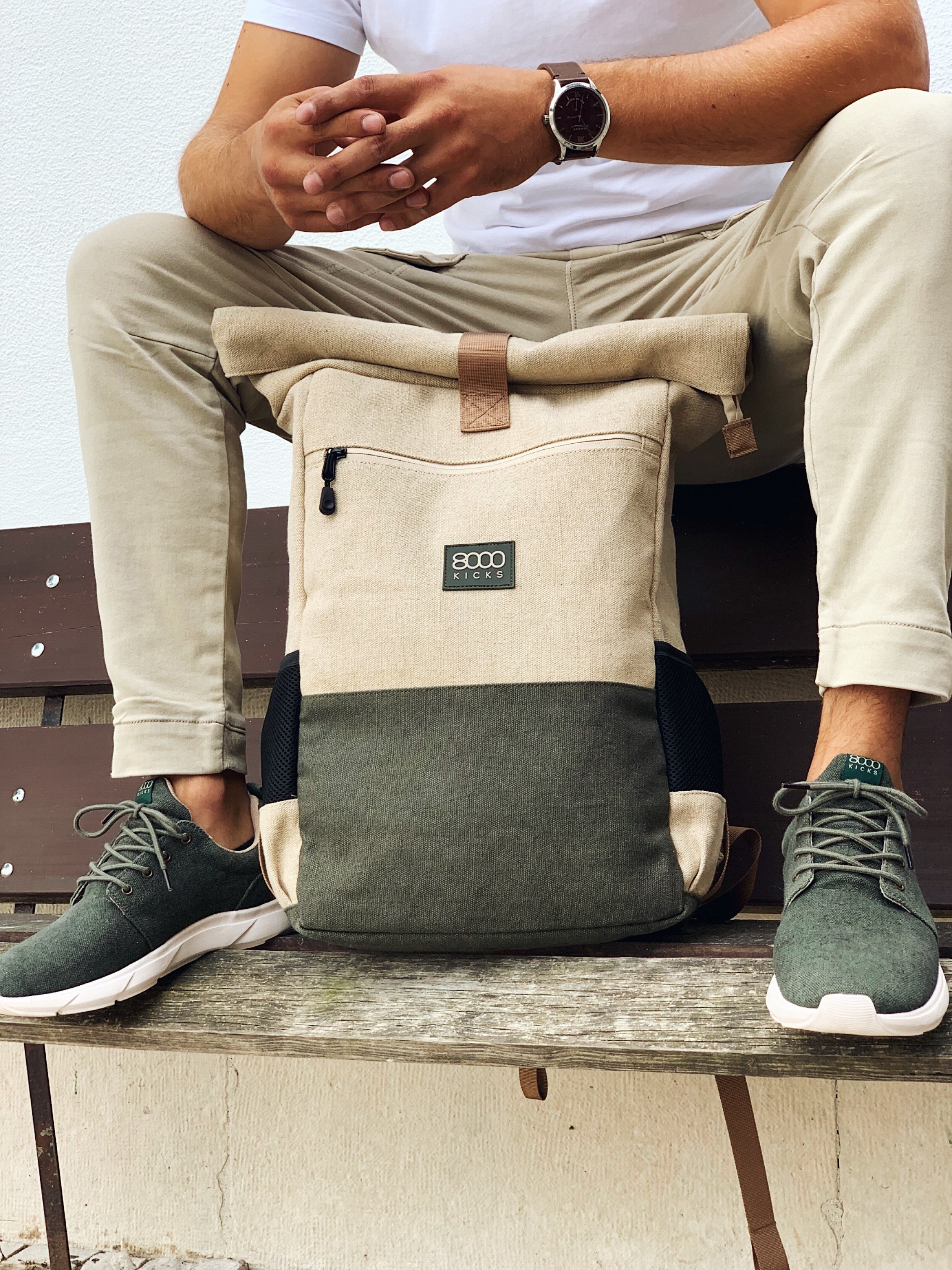6 Sustainable practical backpacks for the everyday lifestyle
Photo by Sandqvist
Sandqvist
With several extensive policies, clear goals for 2025 and regular sustainability reporting, this company takes their responsibility towards the planet and its people seriously. They are a member of Fear Wear Foundation and have all their factories and suppliers listed on their website. Among materials used are organic cotton, recycled polyester and recycled nylon.
8000kicks
Shoes made of hemp? Yes, you heard right and the soles are made of material from algae. The average emissions for a pair of running shoes are 14Kg of CO2, 8000kicks managed to reduce that to 4.1 Kg of CO2. The factories are located in China and Portugal and are partly run by renewable energy.
Photo by Outdoorbrands
Patagonia
The company is not doing profit for its own sake anymore. The founder recently announced it will go to non-profit organisations to handle some of the most profound climate and environmental challenges of our time. Patagonia has 87% of their line being Fair Trade certified and has 550 farmers participating in their Regenerative Organic Certified Pilot Cotton programme. 100% of the cotton they use is organic, other materials used are recycled Spandex, recycled wool, Tencel and recycled nylon. It’s one of the companies that do know its carbon footprint and are seeking ways to drastically reduce it. Learn more here.
Photo by Brandfield
Fjällräven
With a clear sustainability design philosophy, efforts are made already in the design process to make sure the items last and can be used for a very long time. Their excellent listed materials are Tencel, recycled wool and hemp. They have said no to several harmful chemicals such as Fluorocarbons. They are a part of the Fair Labor Association since 2013.
Photo by kindhumans
Terra Thread
The backpacks are carbon neutral which means that the company measure their emissions, reduces them and offsets what they cannot reduce at the moment. Among the materials used is organic cotton which is also Fairtrade Certified Organic Cotton. The backpacks are Global Organic Textile Standard (GOTS) Certified, which is the most strict textile environmental certificate you can get. The company is a Certified B Corporation and has donated more than one million meals to families and children in need.
Photo by Aevor
Aevor
Aevor is a member of Fair Wear which is an organisation that helps brands to improve their social work in the factories. A big part of Aevor’s sustainability profile is to use recycled materials as much as possible, at least 50% of each item is recycled. All items also go through Bluesign® systems which is a system that reduces emissions to air, pollution in water and water usage through an Environmental Management System. Some products ate GOTS-certified and organic cotton is also used.
If you find this article useful, please share it with someone so that next time someone needs a backpack it is from one of these brands!






